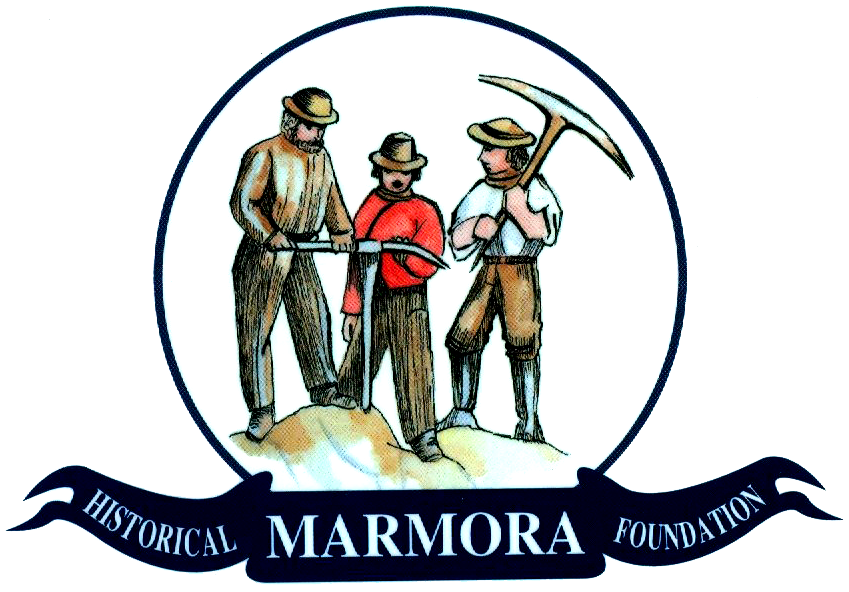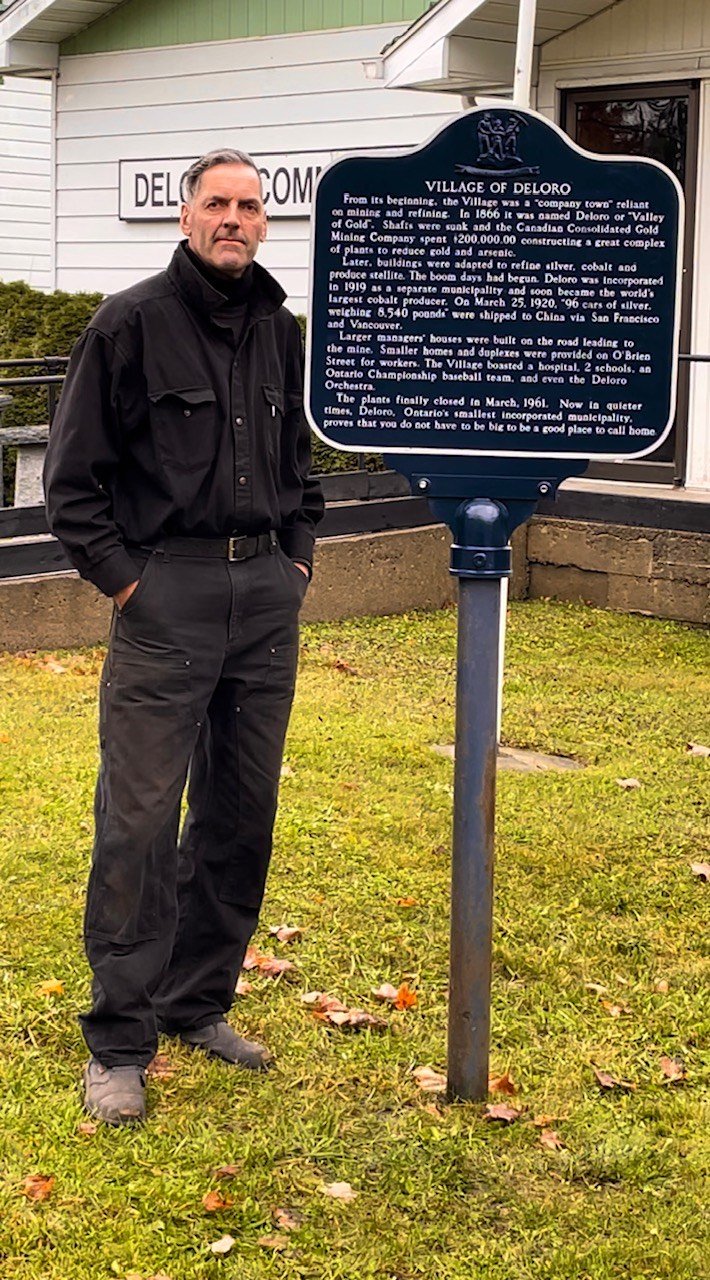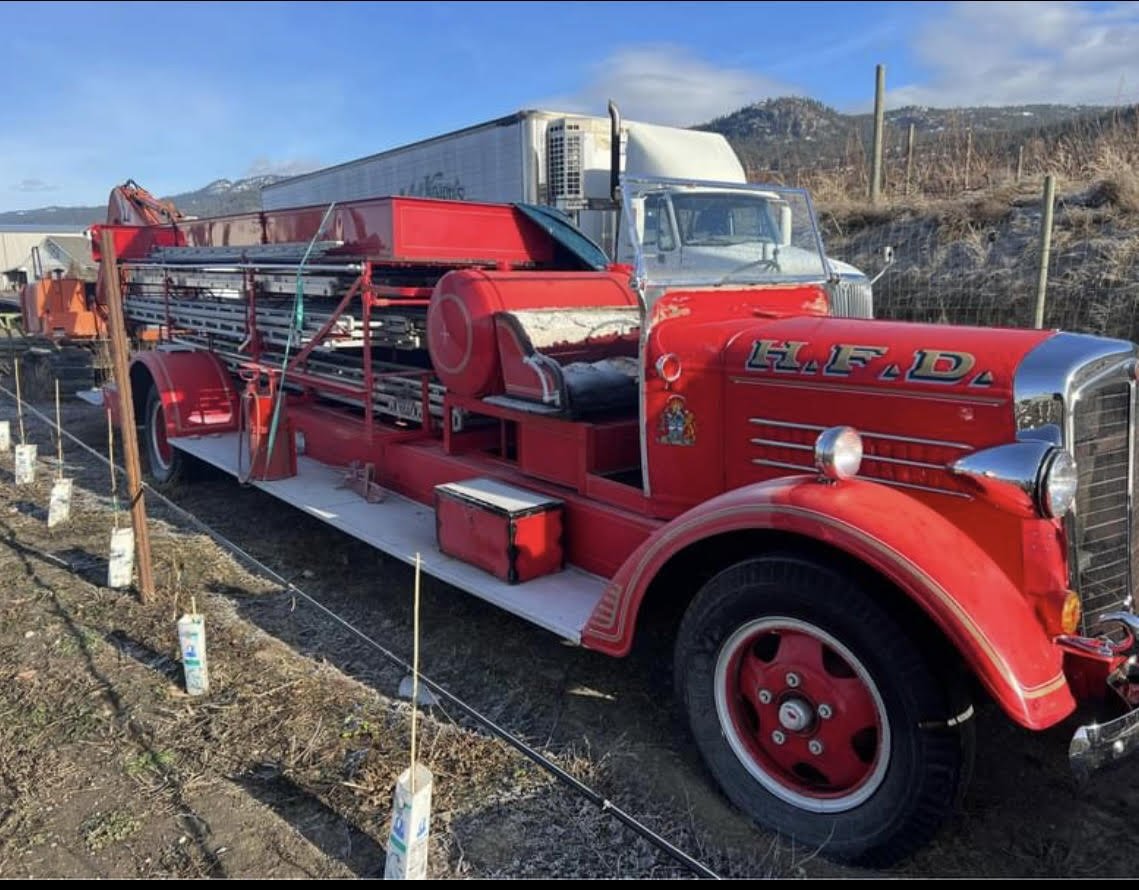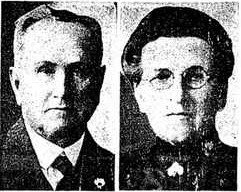GERTRUDE BURNS, DELORO BUTCHER REMINISCES ..........
/In a 1978 interview with Georgina Rodden of the Peterborough Examiner, at the Deloro Nursing Home, Gertrude Marcella Burns (1899-1980) had a few stories to tell.
Miss Burns, a warm personality of diminutive stature, is not only knowledgeable about the history of the Marmora area, but is probably as unique in her career background as any woman could get in Canada. Miss Burns was a meat store butcher and proprietor nearly all her life.
Born and brought up in Marmora Miss Burns contrasts her childhood with the ones of children she can see from the windows of the Home. "Right here at Deloro my father ( John Burns) and I delivered meat door to door. At first, it was with the horse and wagon, then with a little car which resembled a wagon but was motored.
Her father's butcher shop was established just after the first World War and carried on through many changes in the village. Miss Burns recalls stewing beef at 15 cents per pound, T-bone steak 25 cents a pound and pork was cheap, hardly anything for side pork.
Marmora had two butcher shops then. The school was in the building where the Legion is now . Our house and shop were on North Hastings Avenue “ Oh people simply turned their noses up at the innards .. .We made headcheese for the family, for ourselves, but very seldom ever sold much of it in the shop."
“I helped my father from the time when I was a small girl. I did go to Belleville and Toronto a little later on to do housework, but most of my life was taken up with the butcher shop. He broke his wrist really badly cranking up the car. I was the only one available to do the butchering, and I stayed at it until I was of retirement age.” She did everything "All but the killing. Someone else did that for me."
Miss Burns carried on the trade after her father's death. She never had time for acquiring needlework and crafts skills, although she has done a "bit of knitting." not anything she would care to do now. "We made our own entertainment (when she was young)." she recalls. “ Spelling bees at school were the highlight, dances at the local halls with fiddles and mouth organs providing the music, and the dancing both squares and waltzes. Eventually, there were silent movies too.
"I'm the last of the family." she mentions, recalling the French background of both her parents, grandmother and great-grandmother who all came from Montreal to Marmora to settle, hardly speaking English. John Burns farmed at first, and certainly knew "a good many of the river drivers," having gotten to be a part of the lumbering operations in the area. At one time. Miss Burns says, her father was actually connected with the lumber company which loaded the logs at Marmora, after the river drivers had brought them down the tortuous river chain "from the north country."
Nov. 25, 1980
People, places, names come easy to her. "Marmora had dressmakers and hairdressers, bakery, bank, post office, blacksmithing , hardware and Marett’s clothes". I was just a kid when the first car arrived in 1909 . . . my brother was one of the first to drive a car .. . the very first car in Marmora belonged lo Charles McWilliams" . .
"Mostly women worked in the Deloro plant operation during World War II," she recalls, herself among them as a grinder," "and the pay was poor, an indication of the Deloro shutdown to come. When Deloro finally shut all its gates in the early1960s, its workers had been absorbed by Bethlehem Steel, by western and northern new industries, and Lake Ontario shoreline complexes.
"No. I don't see much of Marmora now Miss Burns says. a trifle dolefully. She accompanied the interviewer to the home's front door. One wishes the fact-finding foray and friendly exchange could last longer than it has.
































